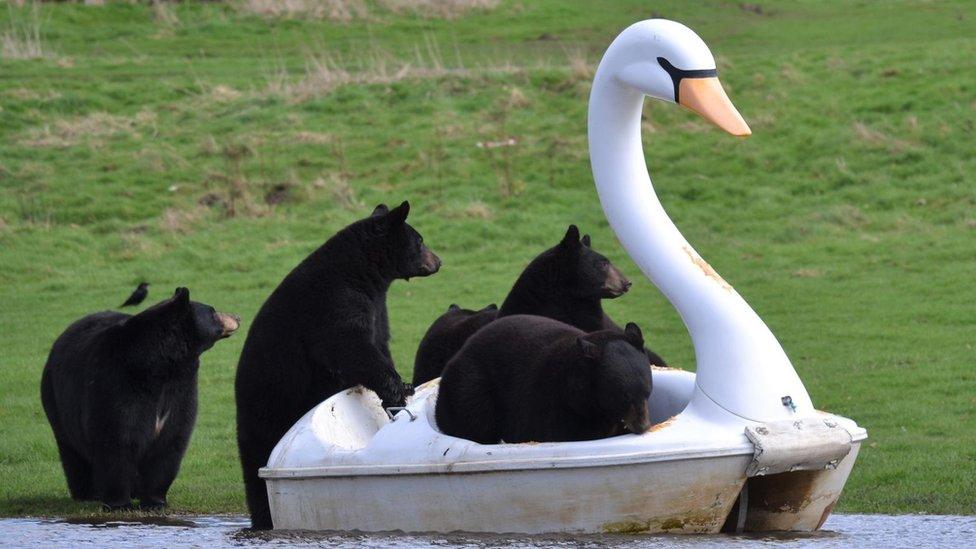Rare bongo's birth a 'win for global conservation'
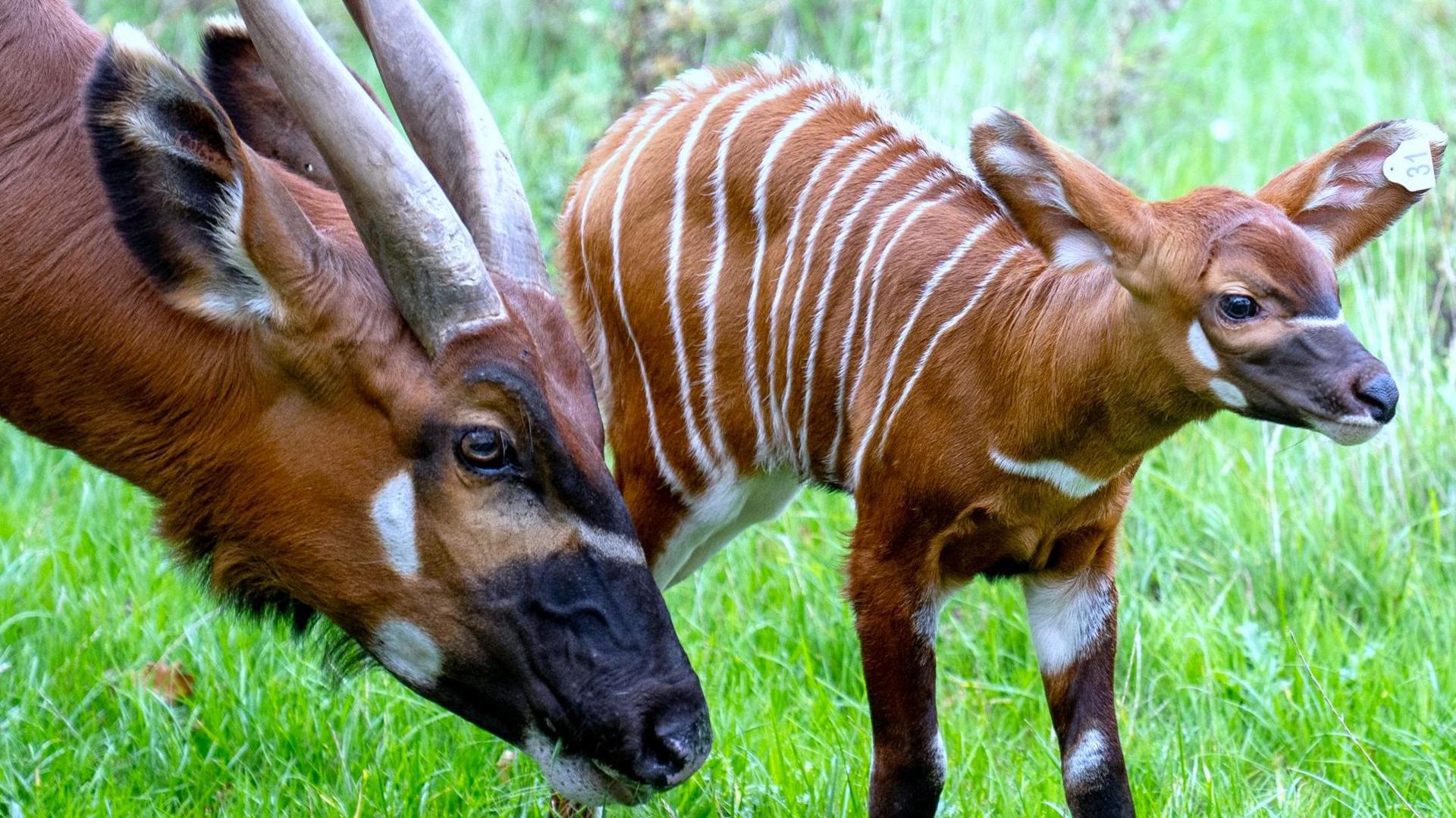
Woburn Safari Park says every successful birth is a meaningful contribution to the conservation of the species
- Published
A safari park said the birth of a rare mountain bongo calf was "a significant milestone for one of the world's most endangered large mammals".
The calf is the first female of the species to be born at Woburn Safari Park in Bedfordshire for more than a decade.
It was born to Othaya, who also gave birth to male calf Djembe last year as part of a special breeding programme.
This type of antelope is listed as critically endangered in the wild, where it is believed fewer than 100 remain.
A spokeswoman for the park said: "Eastern mountain bongo have suffered devastating losses due to habitat destruction, poaching and disease.
"Every successful birth in a managed breeding programme is a meaningful contribution to their conservation."
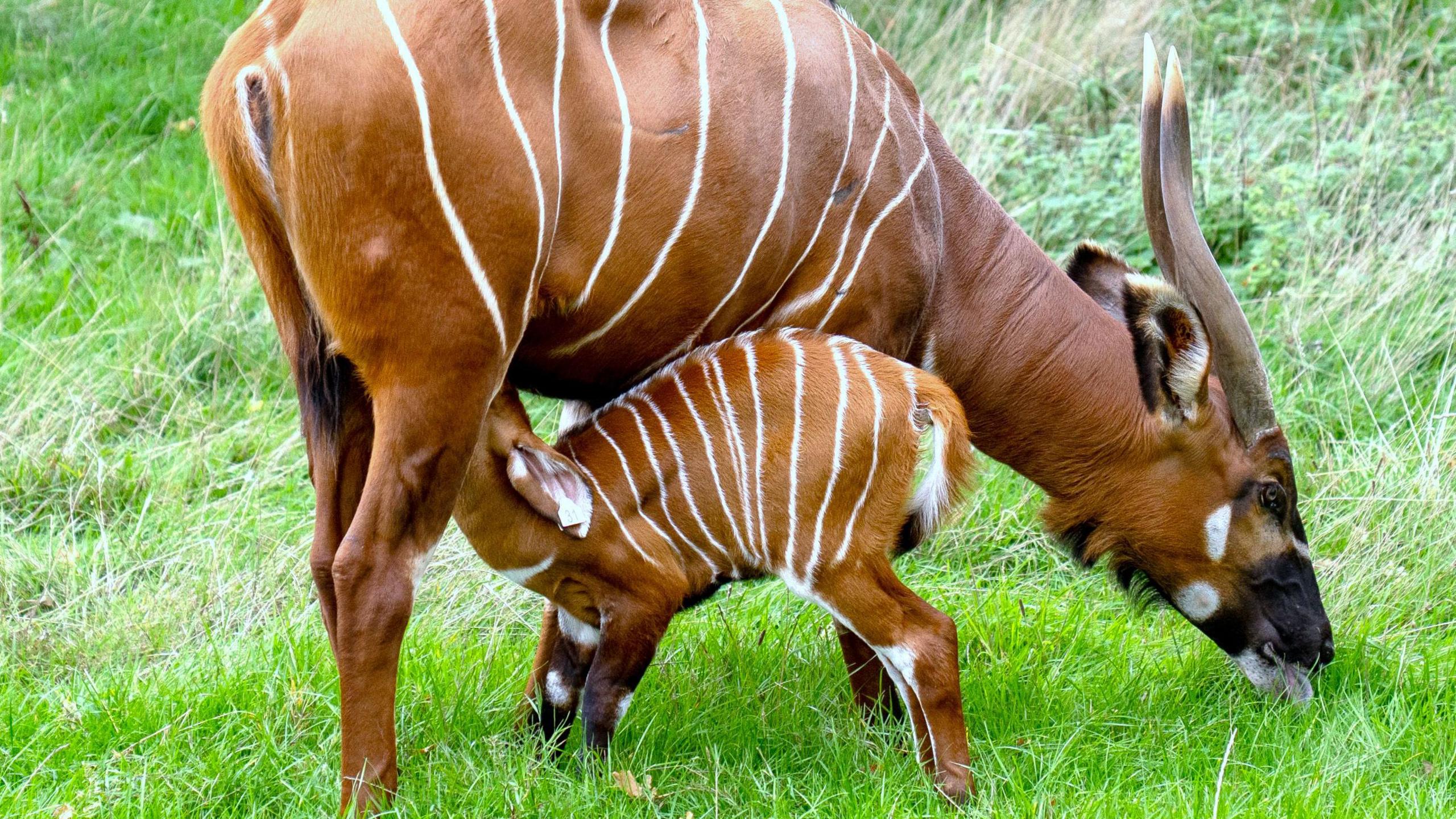
Mother Othaya struggled to feed her calf at first, but is now managing well
Another male calf was born at Woburn in May this year, to first-time mother Odongo and father Sonny.
Head of section Tom Robson, who monitored the birth because of challenges during Djembe's birth, said: "This is Othaya's second calf, and she struggled giving birth to her first one, so we checked her frequently throughout the night.
"Thankfully all was well and we're happy to see a strong-looking calf."
"Othaya struggled to feed the new arrival at first, so we provided a supplement, but now mum is doing a great job.
"As it's a female calf she will hopefully go on to breed in the future and play a part in the survival of the bongo species."
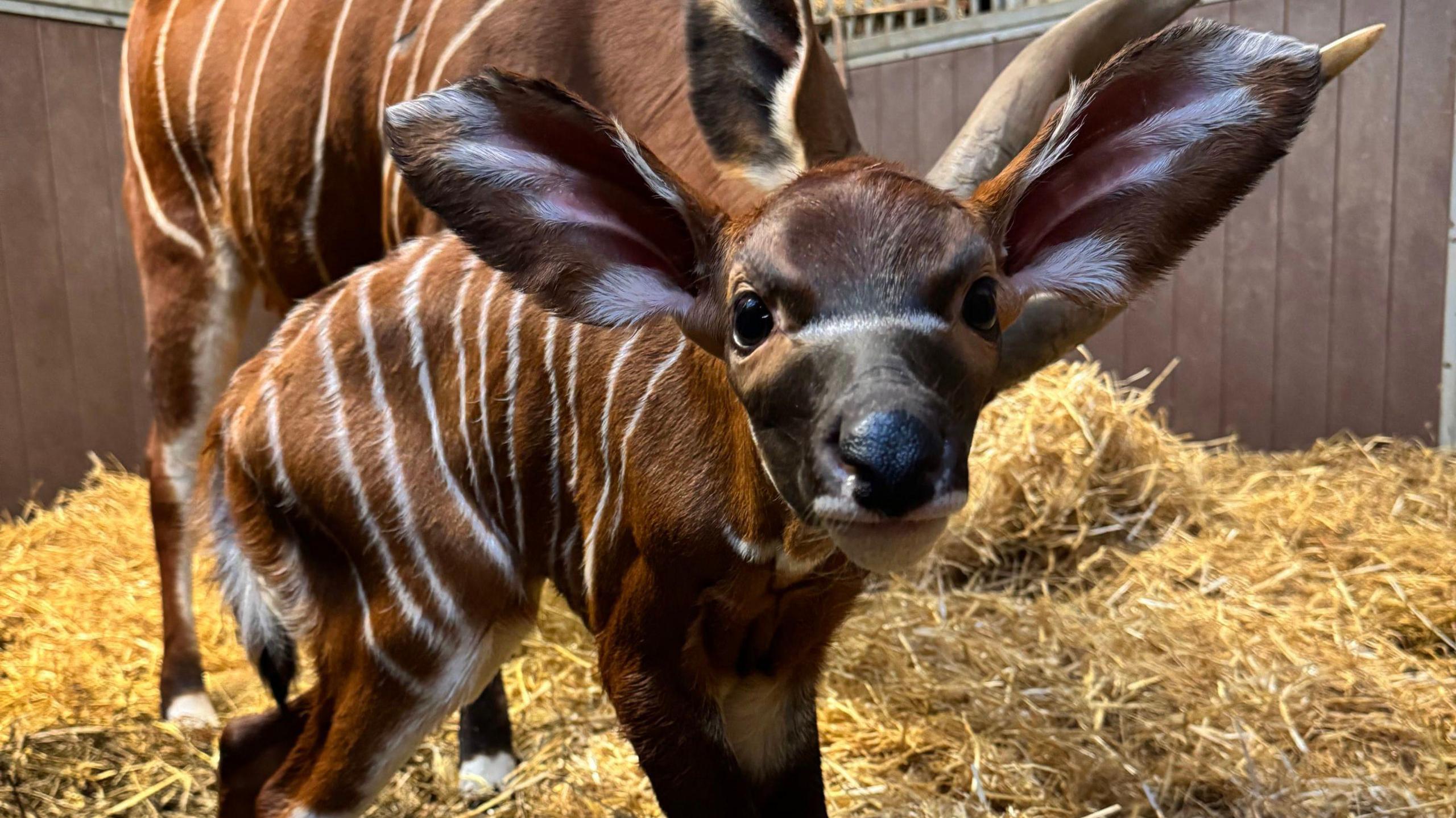
The bongos' chestnut coat and white stripes provide camouflage in dappled forest light
The park spokeswoman added: "The birth of this baby bongo is not only a rare event, it's a strategic win for global conservation.
"Already the calf is showing signs of healthy development and has begun bonding with her older siblings, Djembe and Ziggy, both born at Woburn in recent years.
"Her oversized ears, finely tuned to detect the faintest rustle or call, are not only visually distinctive, but vital for survival in dense, echoing terrain."
Get in touch
Do you have a story suggestion for Beds, Herts & Bucks?
Follow Beds, Herts and Bucks news on BBC Sounds, Facebook, external, Instagram, external and X, external.
Related topics
- Published19 May
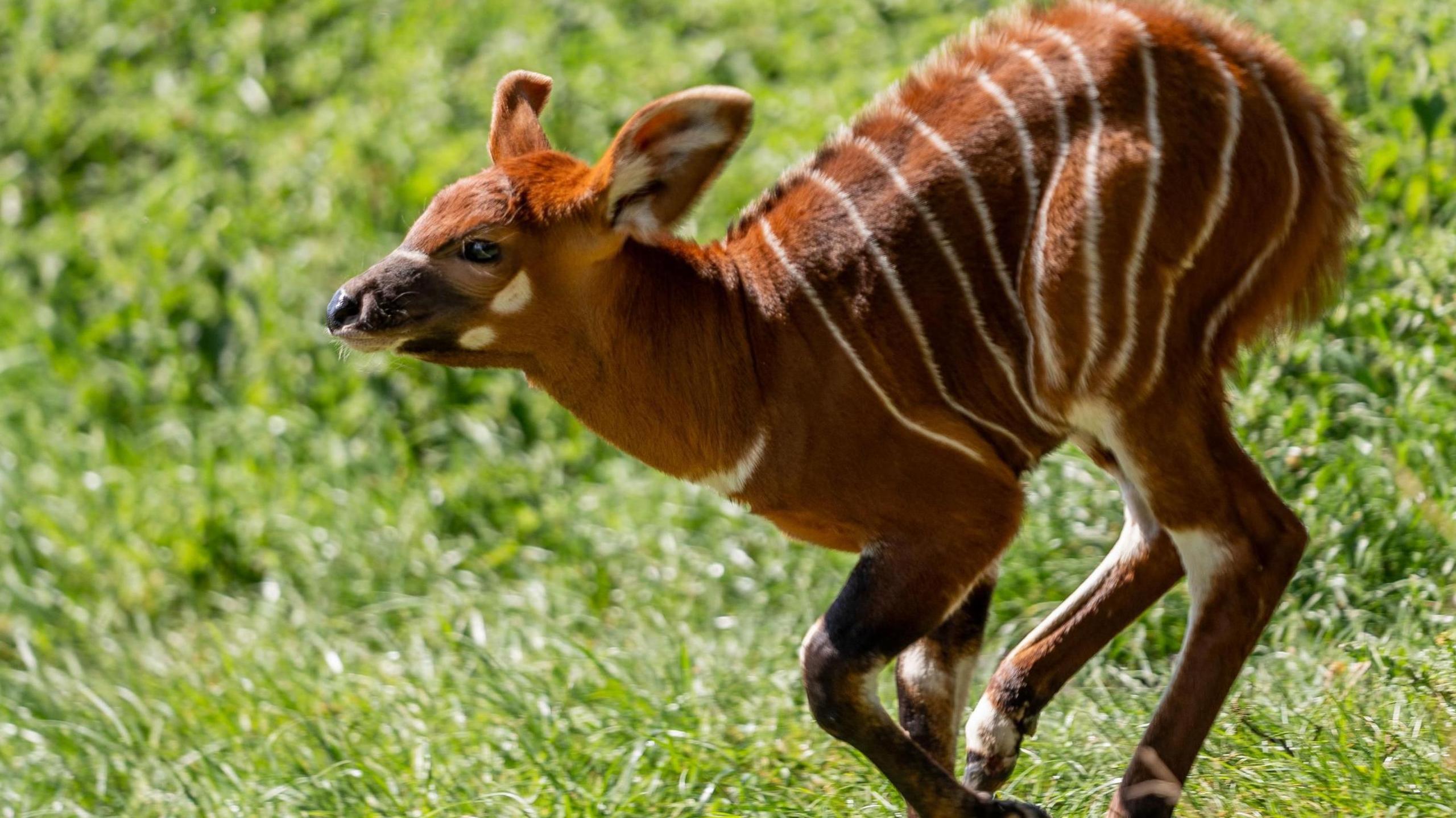
- Published28 October 2024
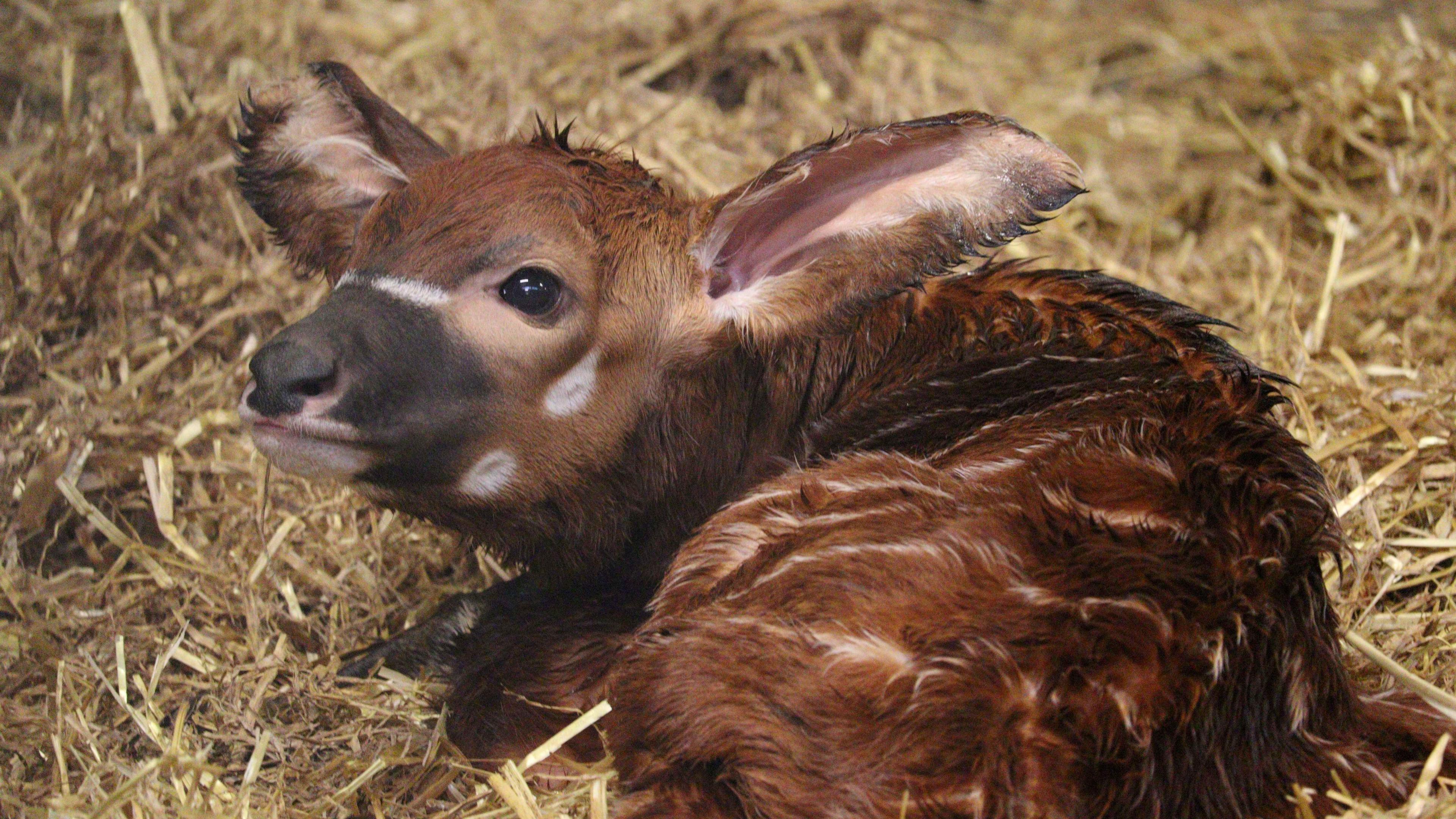
- Published23 March 2024
